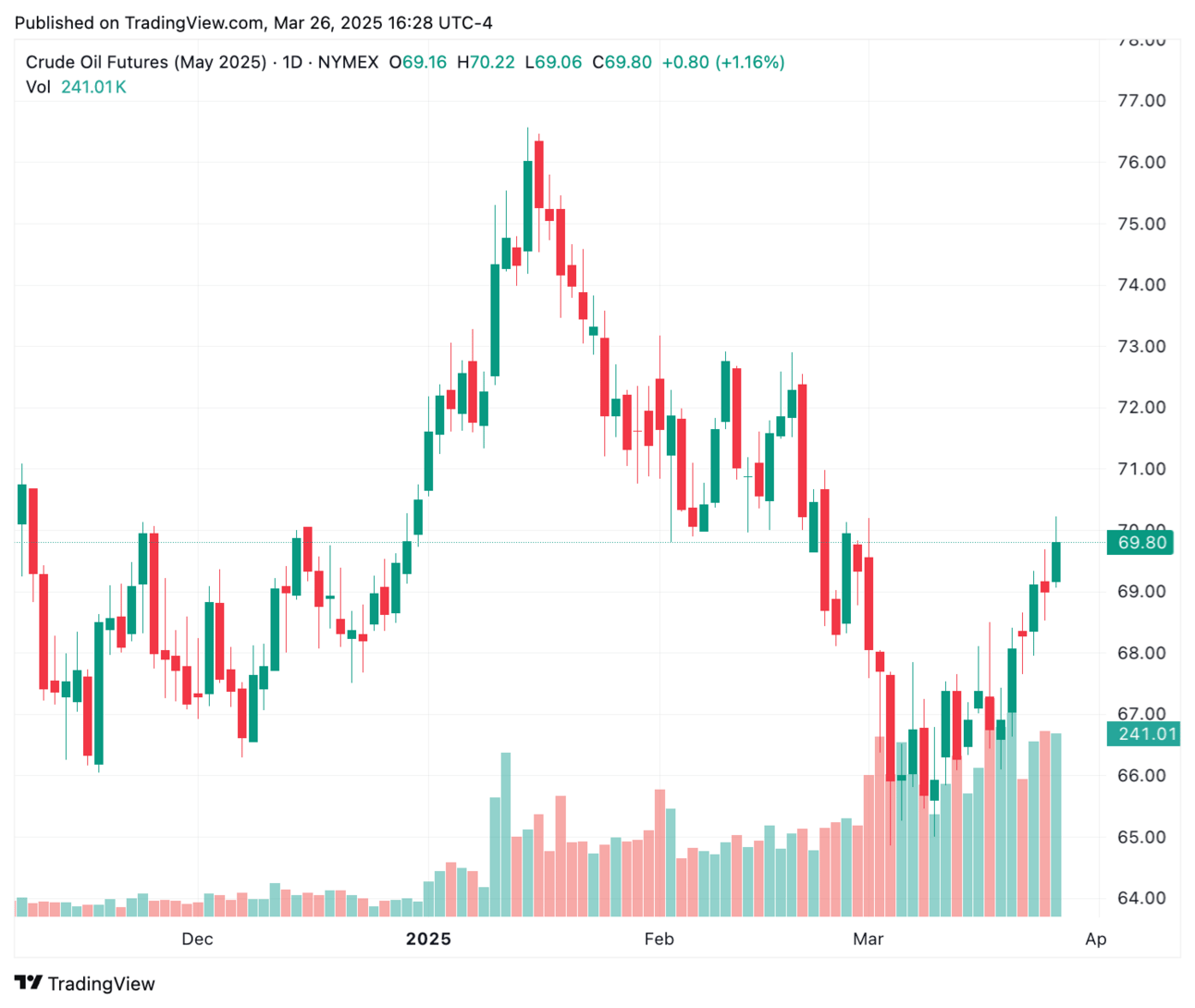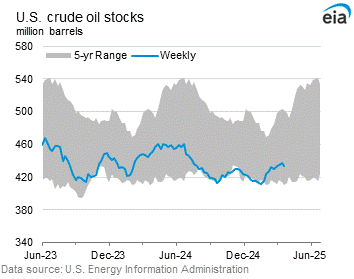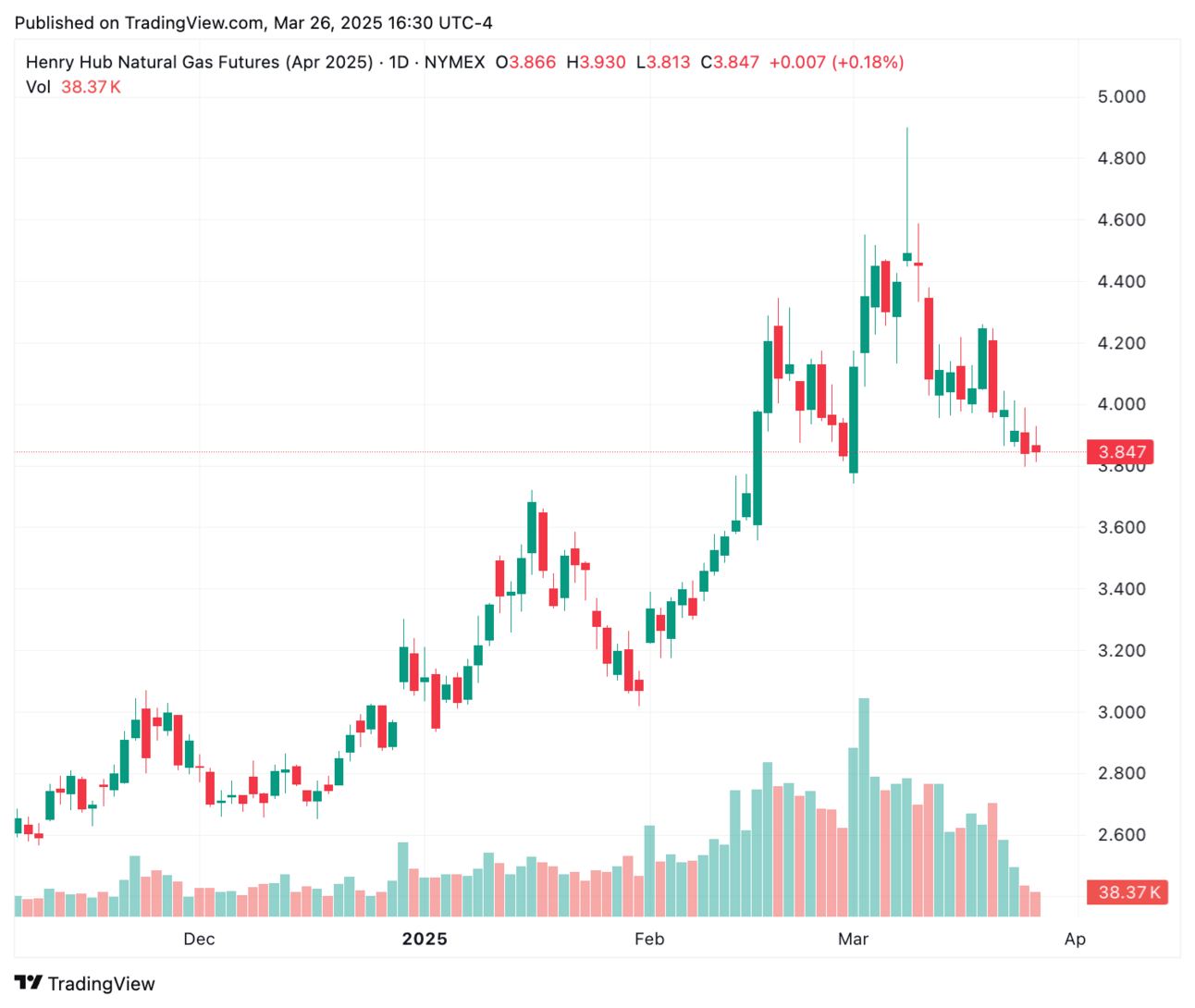- Energized
- Posts
- ⚡EIA Reports Surprise Inventory Decline
⚡EIA Reports Surprise Inventory Decline
Plus, a history of economic warfare
March 27, 2025

Morning everyone,
I know, I know… One slipped by me this week. I’m sure I missed a tariff or two.
But hey, I may have also missed their reversal, so even Steven.
“Clarity” on auto tariffs is expected any time.
What's in this issue:
Energy Market Recap
EIA Reports Surprise Inventory Decline
Chokepoints
Headlines
| Crude Oil (May) | $69.65 | +0.65 | +0.94% |
| Natural Gas (Apr) | $3.861 | +0.021 | +0.55% |
| Copper (May) | $5.2420 | +0.0315 | +0.60% |
| S&P 500 | 5,712.20 | -64.45 | -1.12% |
| Dollar Index (DX) | 104.21 | -0.02 | -0.02% |
Energy Markets

🛢️WTI rose 0.94% yesterday as the EIA reported an unexpected draw in inventories. This, of course, came right on the heels of the Venezuela tariff announcement earlier this week that had already lent support to the market.
The group said US crude inventories declined by 3.3 million barrels. Expectations were for a build of 1.0 million barrels.
The Gulf Coast region saw the largest draw at 3.4 million barrels while stocks at Cushing declined by 800,000.

Source: EIA
WTI Spreads
May/June: +0.44
Jun/Dec: +2.85
Dec5/Dec6: +2.01

🔥 Natural gas continues its drift sideways, posting a gain of .55% as we await today’s EIA inventory data. Expectations are for a build of 26bcf.
European gas prices have also moved lower, but LNG demand will remain high as the continent seeks to replenish its inventories before next winter.
Progress on a ceasefire is obviously closely watched, however, analysts at ANZ Research state that “buyers in Europe remain skeptical they will see any meaningful increase in supplies from Russia,”
PRESENTED BY ENERGY 101
From oil and gas to power and renewables, we have you covered. Groups of ten or more? We can create a custom course from over 50 available course modules to suit your needs.
A History of Economic Warfare

In a world where sanctions, tariffs, and weaponization of the financial system are constant news, it’s worth taking a look at how we got here.
Chokepoints, by Edward Fishman*, does just that, arguing that:
“Great powers once rose and survived by controlling geographic chokepoints like the Bosphorus. American power in the globalized economy relies on chokepoints of a different kind.”
Starting with a history of how the US sanctioned Iran, which provided the key playbook for today’s regime, Fishman then moves forward to today’s economic war against Russia.
Of course, Russia is no Iran. Its economy is much larger and globally interconnected. So whether the old playbook will have the same results is already in question.
In the podcast below, Fishman sits down with the Council on Foreign Relations:
*This link is an Amazon affiliate link. We may earn a commission on sales generated from traffic.
Headlines
“The four hubs targeted for cuts include those in the Midwest, Pacific Northwest, California and the Mid-Atlantic, according to a list circulated by the agency. Funding would be preserved for hubs in Appalachia, the Gulf Coast and the upper Midwest.”
+US weighs funding cuts to four of seven hydrogen hubs - Reuters
“Russia wants the reconnection of its state agricultural bank Rosselkhozbank to the SWIFT international payments system. That and other steps could require agreement from European countries.”
+Kremlin says various conditions must be met before Black Sea security deal can be activated - Reuters
“Nuclear reactors have generated more electricity than South Korea's coal and natural gas-fired plants since September of last year, and have helped the country's utilities make steep cuts to fossil fuel purchases and use so far in 2025.”
+Nuclear growth helps South Korea cut back on coal and LNG imports - Reuters
Economic Calendar
Monday -
Tuesday - Home price index, New home sales, Consumer confidence
Wednesday - Crude Oil Storage Report, Durable goods
Thursday - Natural Gas Storage Report, Jobless Claims, GDP
Friday - Consumer sentiment

